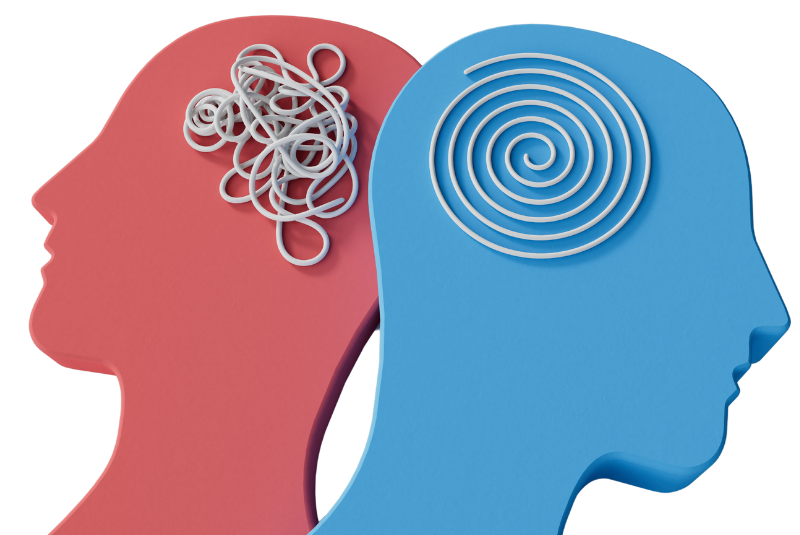 Trauma, whether experienced in childhood or adulthood, can have profound and lasting effects on both the brain and body. Understanding how trauma impacts these interconnected systems is essential for developing effective interventions and supporting individuals on their healing journey. In this blog post, we’ll explore the intricate ways in which trauma affects the brain and body, shedding light on the complex nature of trauma-related disorders.
Trauma, whether experienced in childhood or adulthood, can have profound and lasting effects on both the brain and body. Understanding how trauma impacts these interconnected systems is essential for developing effective interventions and supporting individuals on their healing journey. In this blog post, we’ll explore the intricate ways in which trauma affects the brain and body, shedding light on the complex nature of trauma-related disorders.Neurobiological Effects of Trauma:
-
Amygdala: The amygdala, a brain region involved in processing emotions and threat detection, becomes hyperactive in response to trauma. This heightened reactivity can lead to exaggerated fear responses and hypervigilance, contributing to symptoms of anxiety and post-traumatic stress disorder (PTSD).
-
Hippocampus: The hippocampus, which plays a key role in memory formation and regulation of the stress response, may undergo structural changes in individuals exposed to trauma. Reduced hippocampal volume has been observed in individuals with PTSD, leading to difficulties in memory consolidation and emotional regulation.
-
Prefrontal Cortex: The prefrontal cortex, responsible for executive functions such as decision-making, impulse control, and emotion regulation, may exhibit alterations in individuals with a history of trauma. Dysregulation of the prefrontal cortex can impair cognitive flexibility and emotional regulation, contributing to symptoms of depression and PTSD.
Impact on the Body:
Trauma not only affects the brain but also exerts profound effects on the body’s physiological systems:
-
HPA Axis Dysregulation: Trauma can dysregulate the hypothalamic-pituitary-adrenal (HPA) axis, the body’s primary stress response system. Chronic activation of the HPA axis can lead to sustained elevations in cortisol levels, disrupting immune function, metabolism, and cardiovascular health.
-
Autonomic Nervous System Imbalance: Trauma can also disrupt the balance between the sympathetic and parasympathetic branches of the autonomic nervous system. This dysregulation can manifest as heightened arousal, exaggerated startle responses, and difficulties in self-regulation.
-
Inflammatory Response: Trauma-induced stress can trigger an inflammatory response in the body, leading to increased levels of pro-inflammatory cytokines and chronic low-grade inflammation. Prolonged inflammation has been implicated in a range of physical health problems, including cardiovascular disease, metabolic disorders, and autoimmune conditions.
Comprehensive Care and Awareness:
Trauma has far-reaching effects on both the brain and body, impacting neurobiological functioning, physiological systems, and overall health. Recognizing the complex interplay between trauma and its consequences is crucial for providing comprehensive and trauma-informed care to individuals affected by trauma-related disorders. By addressing the underlying neurobiological and physiological mechanisms of trauma, healthcare professionals can develop targeted interventions and support strategies to promote healing and resilience.
Conclusion:
Understanding the impact of trauma on the brain and body is essential for fostering healing and recovery. By addressing neurobiological and physiological effects, healthcare professionals can provide effective trauma-informed care. For those seeking support in San Diego, Luma Health & Wellness offers specialized care to address trauma’s effects on mental and physical health.
Trauma has a profound impact on both the brain and body, influencing neurobiological functioning, physiological systems, and overall health. Recognizing this interplay is crucial for providing comprehensive, trauma-informed care to individuals affected by trauma-related disorders. By addressing the underlying neurobiological and physiological mechanisms of trauma, healthcare professionals can develop targeted interventions and support strategies to promote healing and resilience.




